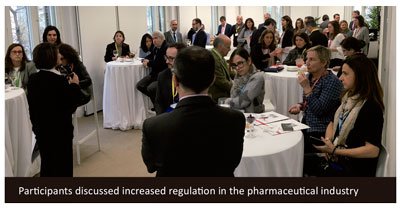Principles for advertising medicines and medical devices – Caiado Guerreiro
On 6 January 2017, Decree Law 5/2017 was published in Portugal approving the general principles of advertising of medicines and medical devices, and establishing the rules concerning scientific actions to be carried out in establishments, services and bodies of the public health service, “Serviço Nacional de Saúde” (SNS).
This law was enacted in response to the need to safeguard transparency and pursue the public interest, more specifically by preventing conflicts of interest in the relationships between pharma industry and healthcare professionals and organisations. It actually follows the guidelines of the European Commission, in particular in the document “List of Guiding Principles Promoting Good Governance in the Pharmaceutical Sector”, which is in line with the need to improve good governance in the health sector.
According to the law, the advertising activity must be in accordance with the principles of the primacy of protection of public health, rational use of medicines and medical devices, as well as with the principles of integrity, mutual respect, responsibility, moderation, transparency and collaboration with competent authorities. These principles must now be adhered to by distributors of medicines, marketing authorisation holders, manufacturers and distributors of medical devices, in all their advertising and promotional activities. All this reflects the enhancing of ethical standards in this area of health.
From now on, all establishments and services of the SNS are prohibited from receiving or encouraging the granting of any kind of pecuniary benefit from entities that supply medicines, medical devices and other health technologies. However, there is an exception if such benefits do not compromise the independence and the impartiality of the SNS institutions. But in this case, the benefit has to be duly authorised by the Health Minister.
 Likewise, scientific or other actions that take place in these establishments or as part of these services cannot have a promotional objective or be sponsored by entities producing, distributing or selling medicines or medical devices. Nevertheless, this prohibition does not affect the visits and access by sales representatives of medicines and medical advices, in accordance with Order No. 8213-B/2013 of 24 June.
Likewise, scientific or other actions that take place in these establishments or as part of these services cannot have a promotional objective or be sponsored by entities producing, distributing or selling medicines or medical devices. Nevertheless, this prohibition does not affect the visits and access by sales representatives of medicines and medical advices, in accordance with Order No. 8213-B/2013 of 24 June.
One of the most important changes introduced by this framework concerns the strengthening of the transparency requirement in the relationship between suppliers of medicine and medical devices, on one hand, and healthcare organisations and professionals on the other. This law introduces the legal definition of “benefit”, which means any advantage, value, good or duty valuable in cash, regardless of the form of its granting.
Henceforth, whoever grants any benefit to any entity is obliged to report it within 30 days as from the effective date of the benefit. After this communication, government agency Infarmed notifies the receiver, who has another 30 days to validate the receipt of the benefit or transmit its non-validation. Actually, it is mandatory that those who receive a benefit to confirm it or to transmit their reasoned non-confirmation to Infarmed. Moreover, the receivers are required to refer to this fact in all documents issued in the scope of its activity and intended for public disclosure.
João Caiado Guerreiro is a partner at Caiado Guerreiro. He can be contacted at jguerreiro@caiadoguerreiro.com
Filipa Mier is a lawyer at Caiado Guerreiro. She can be contacted at fmier@caiadoguerreiro.com












